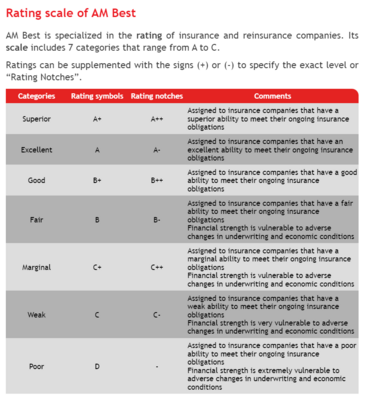Stephen Round
Expert
- 30
Nobody has ever lost money, or gone through the SGA process, in an guaranteed annuity from a AA or AAA rated insurer. That is a fact.
So if CBL was rated B++ in 2017 and Citizens Bank told us it was a "top rated" company, wouldn't you say that was a crime?
Don't they have some exposure for misrepresenting the product? And shouldn't they have seen the writing on the wall as things were going down-hill and notified their clients that it was time to bail out - BEFORE the company was put into receivership?

